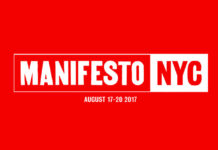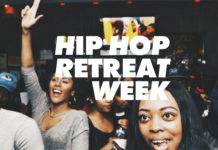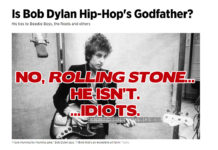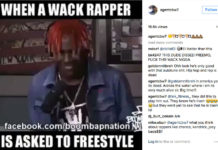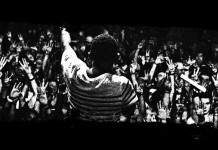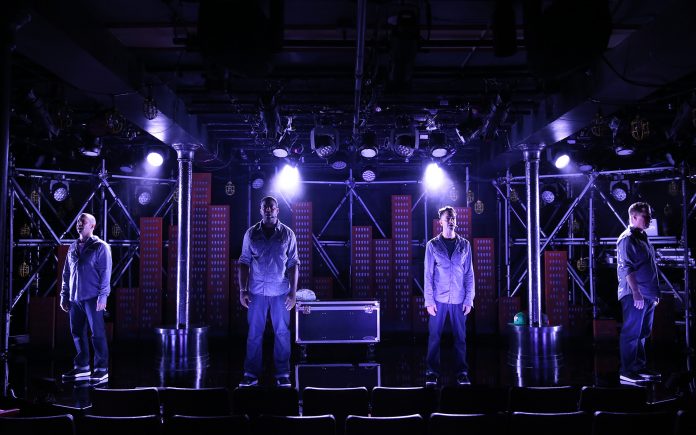Hip-hop purists have had to endure the over-commercialization and bastardization of their culture’s musical sector, watching as various industries moved in throughout the years and co-opted the genre to help fill their capitalistic coffers.
At the same time, hip-hop evolutionists proudly praise the advances the artform has made into mainstream culture, as a parent might, even while having to defend again the aforementioned purists who tend to judge much of “today’s hip-hop” through the narrow lens of over-simplistic, often uninspiring examples which live on mainstream radio.
Connoisseurs have long been torn by these two dichotomies, often rightly so. After all, when these two worlds come together, the results can be groundbreakingly innovative or cartoonishly ultra-sanitized.
Then there are those who live outside the hip-hop universe, many invariably erring on the side of marked indignation when it comes to recognizing and respecting hip-hop as an advanced artistic and musical artform.
Of course, those who may have guffawed at the idea that great cultural contributions could be delivered using the vehicle of rap music have been busily eating crow ever since the meteoric success of Broadway darling Hamilton famously proved otherwise.
It is important to note, however, that despite the indisputable and unparalleled genius of his creation, Hamilton has never been a one-off, in the sense that hip-hop-infused performing arts weren’t invented by Lin Manuel-Miranda.
Rap has shown up in other Broadway shows throughout the years, from Into The Woods (1987), Rent (1996), Urinetown (2001) and Miranda’s previous hit show, In The Heights. While Hamilton might have made rap its central tone in a way others haven’t, there have been many examples of full-on theater shows where it is the main vehicle.
For many years, Canadian playwright Baba Brinkman has been creating and performing one-or-two man shows which brilliantly execute peer-reviewed, scientifically accurate material, rapped over hip-hop tracks, delivering experiences that are as much educational as they are entertaining.
Indeed, as hip-hop music has become ubiquitous in popular mainstream music, many forget that the genre is, by its very wordy nature, much more capable of telling a complex story than any other.
Even a classic complex story like Othello.
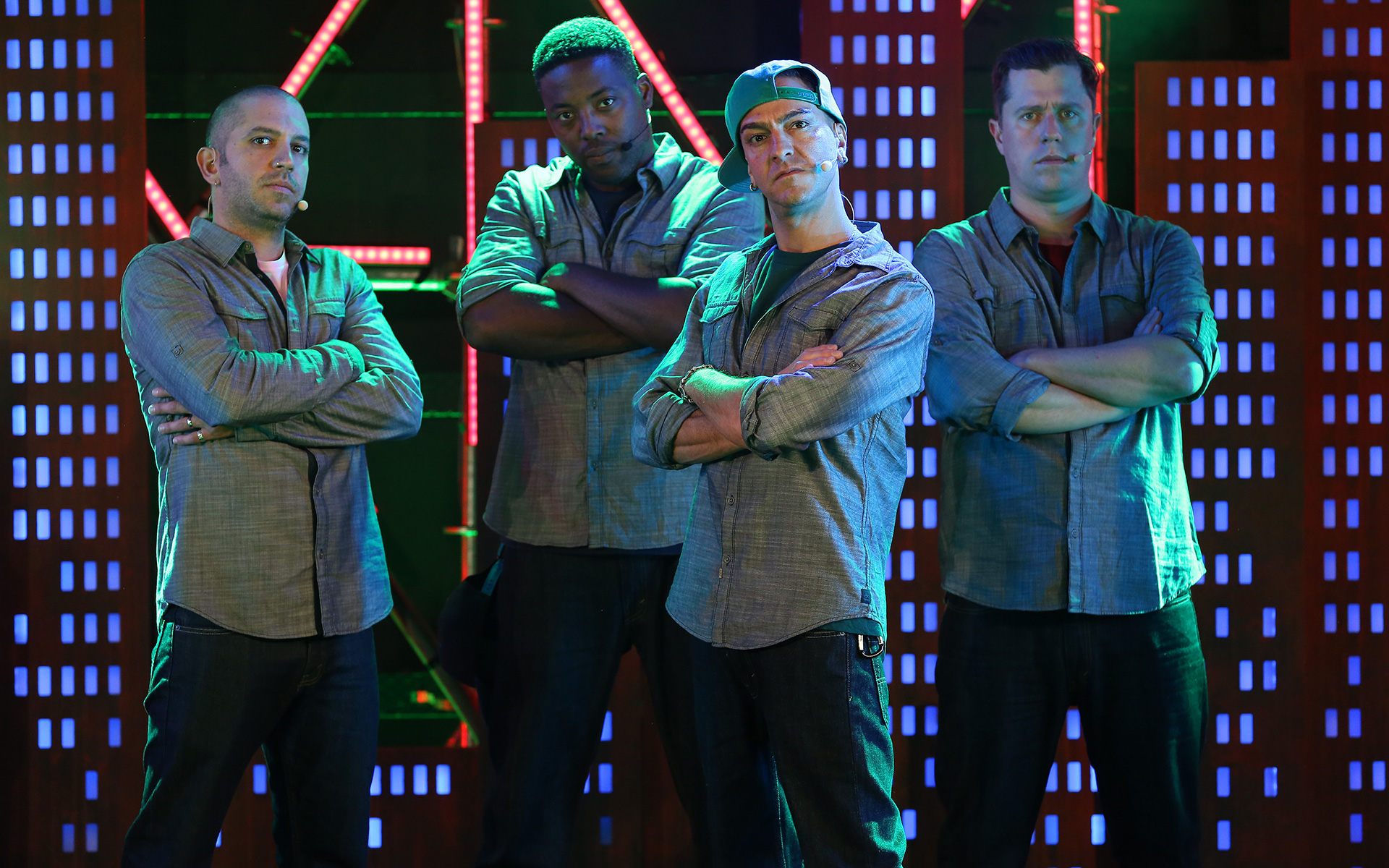
Enter The Q Brothers. These playwrights have been delivering modernized versions of Shakespeare’s works for years, to critical acclaim, and now, after successful worldwide workshopping and a producer boost from stage and screen star John Leguizamo, their take on Othello has landed in New York for a run at the Westside Theatre.
Many guffaw-types will undoubtedly snort at the idea of morphing such a timeless classic with the language and sounds of modern pop culture, but as with Hamilton, this sort of blind elitism would be a mistake.
Instead of telling the Othello story using rap, Othello: The Remix, is more the telling of AN Othello story, with rap music serving not only as the vehicle of verbal delivery, but a cleverly updated backdrop for this iconic tale of jealousy and betrayal.
Those with a cursory knowledge or vague memory of Othello might remember the names, but perhaps little else about the story. They are quickly reminded, as the four man ensemble (five, if you include the integral participation by DJ Supernova — which you should) stealthily transforms from narrator to character (and other characters) and back again, with impeccable timing, peppered with more humor than one might expect from such a tragic tale.
While one part of Shakespeare’s greatness was the story, the other was his poetic command of the language. While rap in any form might be off-putting for some, it is important to recognize that the inverse is often true. Blame modern education if you must, but fewer and fewer these days are in step with bygone linguistics. As much as we should appreciate the poetry of the past, there should be no taboo on appreciating reworkings of classic tales, much like Alfred Hitchcock’s cinematic masterpieces often conceptually borrowed quite heavily from ancient Greek tales.
In this regard, Othello: The Remix succeeds handily. Just like Brinkman’s works, a hip-hop oriented crowd is able to appreciate the story as it is delivered in a language and medium they are organically familiar with, while at the same time, non-hip-hop fans will be hard-pressed to not appreciate the platform on which this classic tale is reworked. It is filled with clever wordplay, cunning humor, well-orchestrated choreography and daringly successful breaks of the fourth wall.
Hallmarks of quality theater, by any measure.
Adding to the entertainment value, as in the tradition of great performances of the Bard’s works, cast members deftly play multiple parts, even the women, to the often-uproarious delight of the crowd. The names — and intentions — of the original characters are carried over, as Othello, played dynamically by Postell Pringle, sits atop the entertainment world as a successful musician, with the flyest chick in the game — Desdemona of course — wearing his chain. Despite his status, Othello remains naively unaware, as are the others — Cassio/Emilia (Jackson Doran), a charmingly nerdy Roderigo/bombastic Bianca/tennis-obsessed Vito Loco (JQ) — that they are being perfectly played as pawns at the hands of devilishly backstabbing Iago (GQ).
The audience, a pleasingly diverse mix of ages, ethnicity, and, presumably, reverence for traditional theater, stayed connected and immersed throughout the performance, reveling in the slapstick, respecting the occasional flashes of deep drama and heartily responding to the well-orchestrated musical numbers.
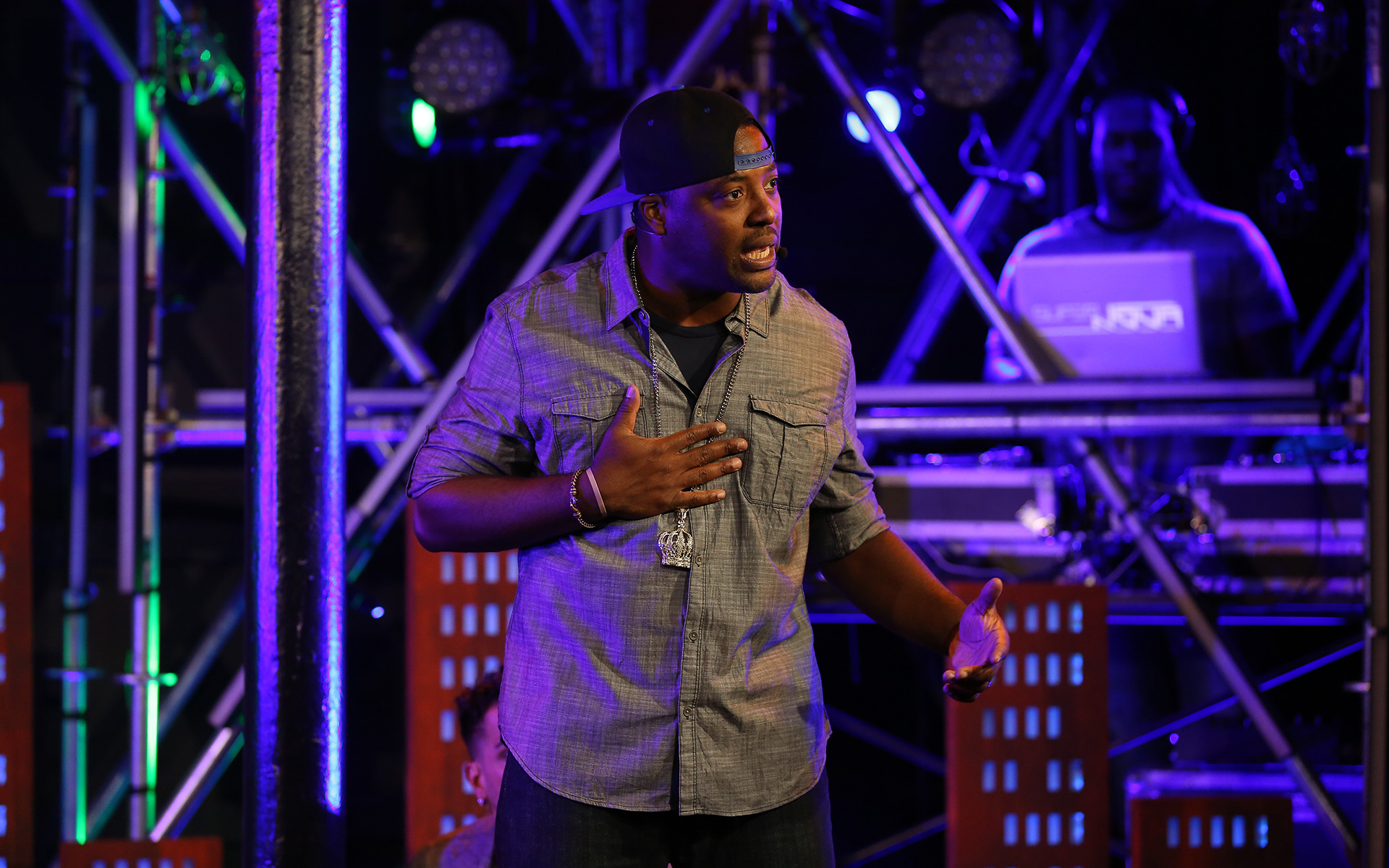
In hip-hop, much is made of the progression of the artform — or perceived lack thereof. Many fans who came up during the genre’s “Golden Era” lament the simplistic, formulaic styling of modern-day, top-40 rap music as well as corporate-led white-washing of the genre.
From afar, many who were brought up with respect for the “classic” arts undoubtedly view our current landscape of literature and visual art with disdain, choosing to hide their heads in nostalgic sand to avoid the onslaught of reality TV and internet clutter.
Despite this, there are areas in which, laying down the defensive guard of traditionalism, one might surprisingly enjoy the coming together of two eras.
Othello: The Remix is a more-than-adequate bridge-builder in this regard. Even with a watered-down version of the original, multi-layered story, uncomplicated music and easily digestible lyrics, all designed for mass consumption, Othello: The Remix is enjoyable, family-friendly fare that perhaps all but the snobbiest of theater-going stalwarts or most close-minded rap fans could enjoy.
It is likely that creators of these sorts of mashup shows feel that their work succeeds best when someone emerges having acquired added respect for the side of the artistic equation they were a bit less familiar with when they entered.
This will happen with this show.
So, in a world rife with cultural misappropriation and misunderstandings, and when many could use an enjoyably quirky distraction from real-life tragedies, it is a great time to give that gift of unexpected cultural appreciation, to oneself or to others, in the form of Othello: The Remix.
GIVE THE GIFT OF OTHELLO: THE REMIX THIS HOLIDAY SEASON
Click here and use our special code: OTRSM39 for discounted tickets through 1/8/17!
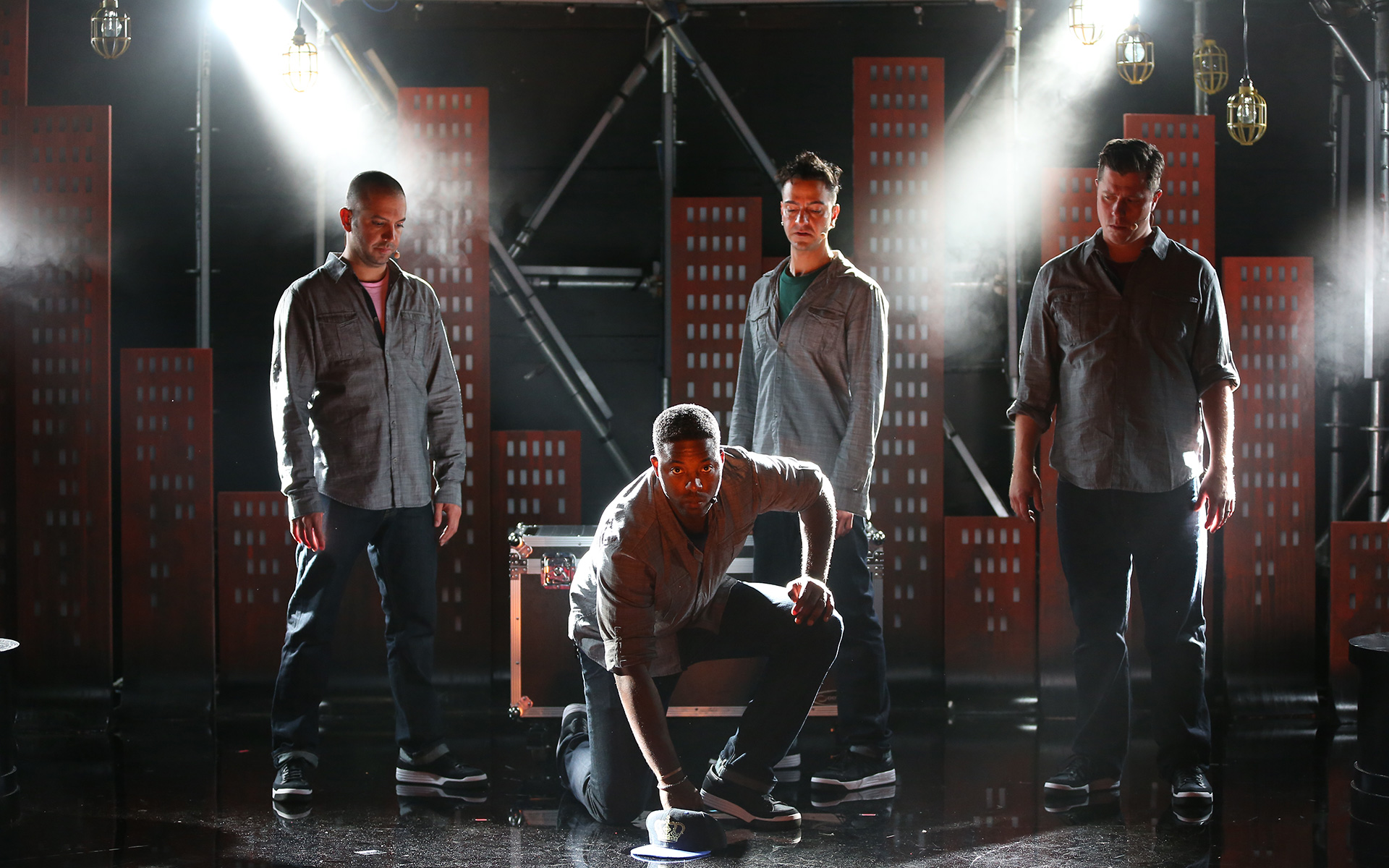
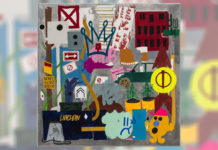
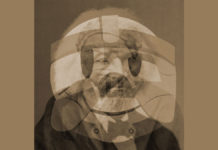
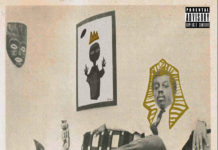
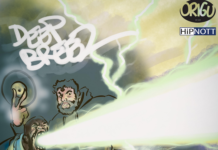

![The Underachievers – Crescendo [VIDEO]](https://www.birthplacemag.com/wp-content/uploads/2017/08/hqdefault-2-218x150.jpg)


![Fat Joe & Remy Ma ft. The-Dream – Heartbreak [VIDEO] Fat Joe Remy Ma The Dream - Heartbreak Video](https://www.birthplacemag.com/wp-content/uploads/2017/05/fat-joe-remy-ma-218x150.jpg)
![JSWISS featuring Chandanie – LML [VIDEO] JSWISS featuring Chandanie - LML [VIDEO]](https://www.birthplacemag.com/wp-content/uploads/2017/05/JSWISS-218x150.jpg)

![Akinyemi Ends Summer With “Summers” EP Release Show [9-17-17] Akinyemi 'Summers' EP release show at Brooklyn Bazaar](https://www.birthplacemag.com/wp-content/uploads/2017/09/summers-featured-218x150.jpg)
![4th Annual NYC VS EVERYBODY Yacht Party [9/16/17] #VSYacht 4th annual NYC VS Everybody Yacht Party#VSYacht](https://www.birthplacemag.com/wp-content/uploads/2017/09/vsyacht-218x150.jpg)
